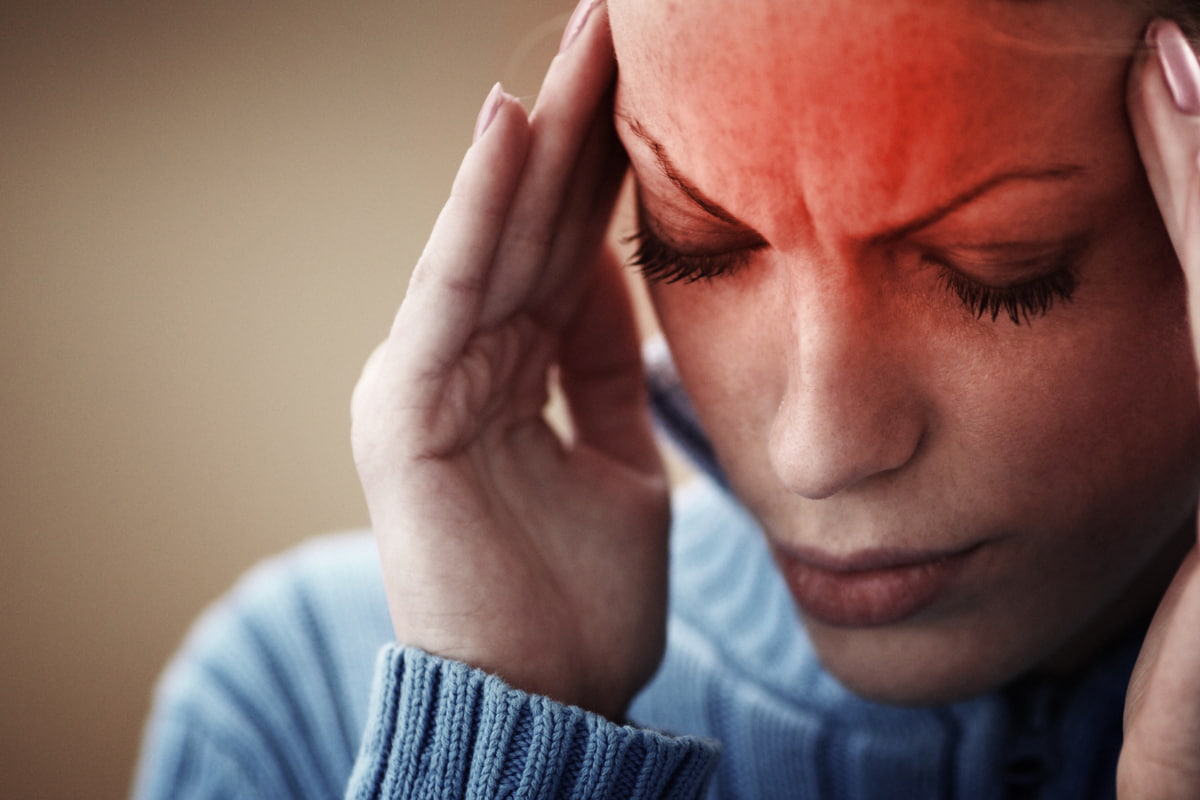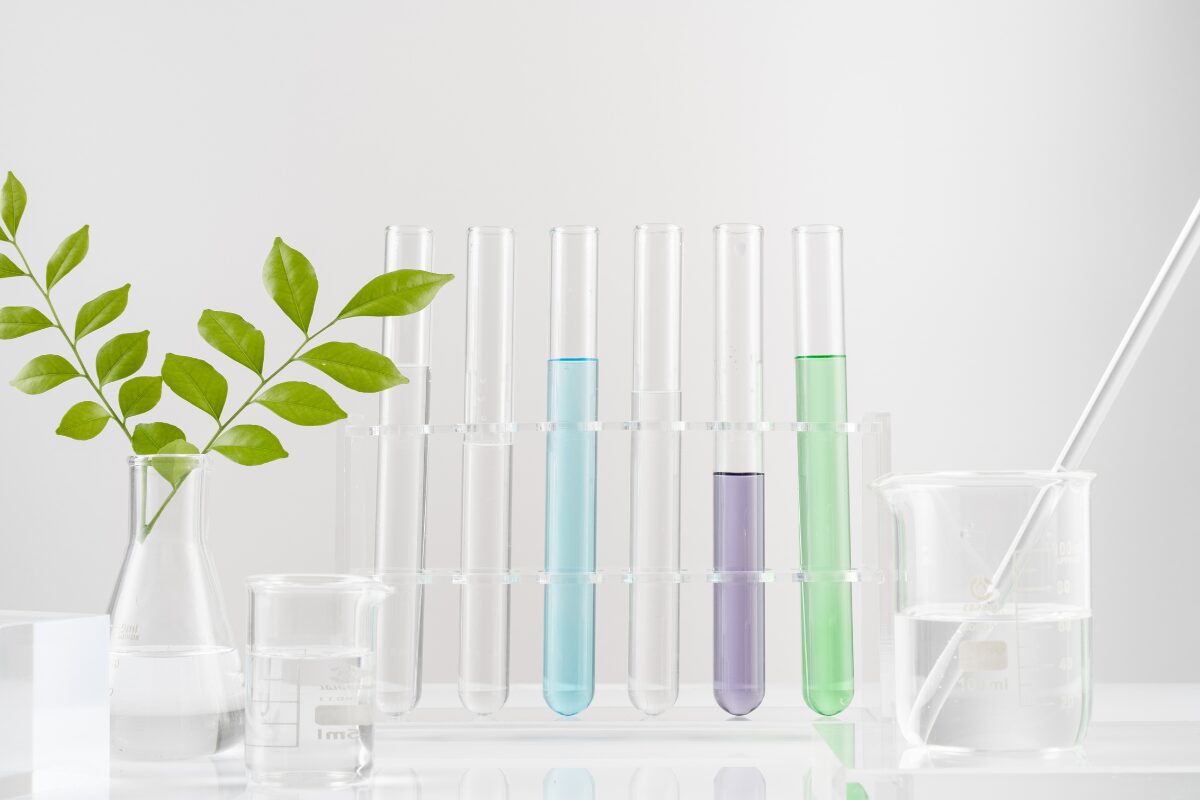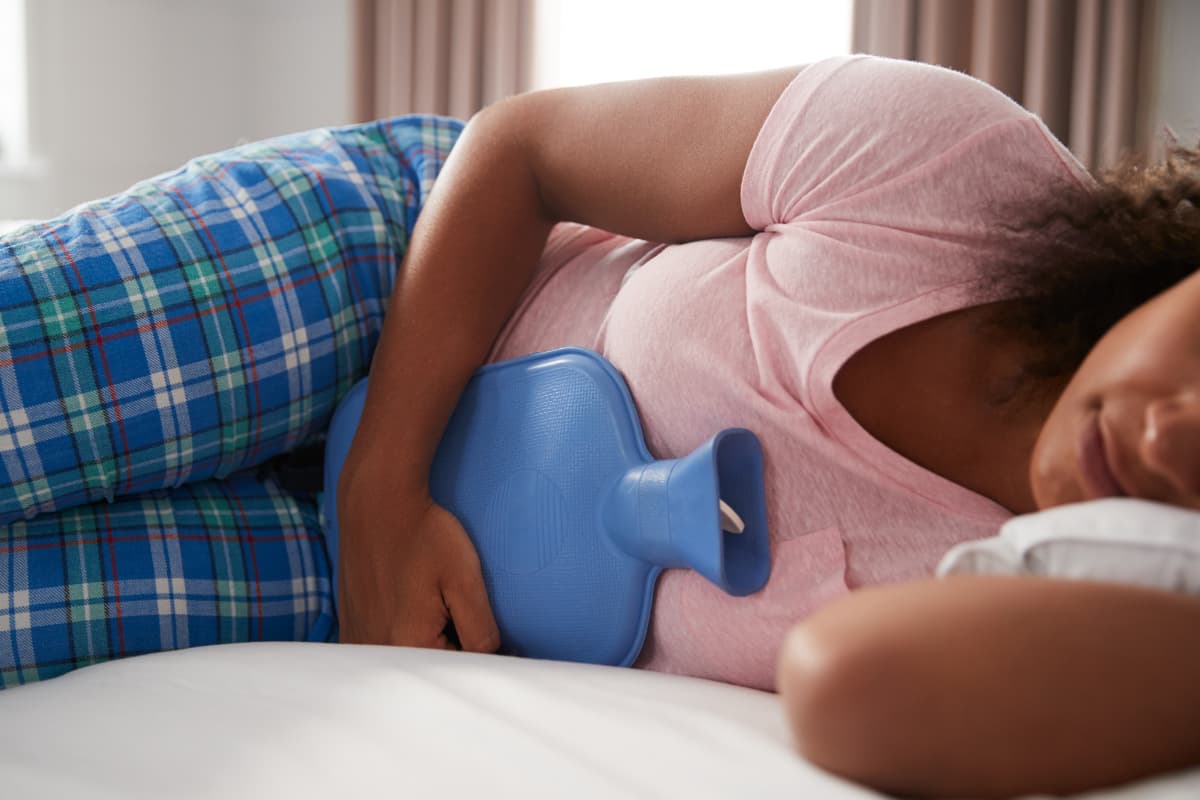Menopause Headaches: Causes, Treatment, and Prevention

A common complaint during the menopause transition is an increase in headaches. Women who have never had headaches before might suddenly start. Those who have previously struggled with headaches or migraines might experience an increase in the number and severity of their headaches.
While headaches can be a problem during menopause (spoiler: hormones), there are strategies to prevent and treat menopause-related headaches and our menopause app can help!
Causes of Menopause Headaches
Headaches
Headaches are pains in your head in the forehead, temples, or back of the neck that can range from mild to severe. A headache usually lasts between five minutes and four hours.
The most common type of headache is tension headache. Research shows that hormone changes in menopause can make people more susceptible not just to migraines but also to tension headaches.
Poor sleep, coping with significant life and body changes, and mood disturbances can all increase stress around the time of menopause. Stress is the number one trigger of tension headaches.
Migraines
Migraines are more severe headaches and can last for days. A reported ten to twenty-nine percent of women experience migraine headaches during menopause. Women experience migraines at a significantly higher rate than men. Eighteen percent of women have migraines, and only six percent of men do. Transgender women on estrogen therapy quickly develop similar levels of migraines as people who were identified as female at birth.
While there are several triggers of migraine, these facts quickly led researchers to explore the link between estrogen and migraine headaches and subsequently finding a connection between estrogen withdrawal, fluctuating estrogen levels, and migraines.
If you have migraines, you probably already know that the changes in hormones you experience around your period can trigger a headache. The same is true in the menopause transition when estrogen levels wildly fluctuate.
Experts have found that not only do women who already had migraines often experience worsening symptoms in menopause, but eight to thirteen percent develop migraines for the first time.
What Do Menopause Headaches Feel Like?
If you have migraines triggered by changing hormone levels, you might experience any or all of the following symptoms.
- Moderate to severe pain, usually on one side of the head
- Throbbing pain
- Sensitivity to light, sound, and touch
- Nausea and vomiting
- Flashes of light or distorted vision
Tension headaches have different symptoms and aren’t usually associated with nausea, vomiting, or sensory sensitivities. You are more likely to experience one or more of these symptoms:
- Dull pain
- Feeling of pressure across the forehead and often both sides of the head
- Neck and shoulder pain
Hormone Therapy and Headaches
You might think that if estrogen levels are the problem, then menopausal hormone therapy (MHT) is a good option to relieve your headaches. For some people, this is true, for others, MHT worsens their headaches. In fact, some women who don’t have headaches will develop them for the first time once they begin MHT. Research has not yet been able to pinpoint what causes this response in some people and not in others. With our knowledge today, it is impossible to predict who will experience headaches as a side effect of MHT. Some clinicians recommend using hormone patches instead of oral MHT to minimize fluctuations in estrogen levels in people prone to hormone-related headaches. Discuss the potential risks and benefits of MHT with your healthcare provider.
Holistic Strategies to Prevent and Treat Headaches
Non-medical approaches can help prevent your headaches. Improving stress management, working on sleep hygiene, getting regular aerobic activity, and eating a healthy diet can all support your mind and body and make headaches less likely to occur.
Food sensitivities can be part of the problem, and they can develop later in life. Gluten, in particular, may trigger an inflammatory response leading to a headache. If you suffer from headaches, a gluten elimination challenge may be beneficial. A dietitian can guide you in identifying food sensitivities.
Complementary and alternative medicine strategies like yoga, massage, meditation, and acupuncture might also help lessen muscle tension and decrease your risk of developing tension headaches.
Medical management may be a lifesaver for those with migraines. Talk to your clinician about the best medication choices for you. If you also have hot flashes, some experts may recommend using medications that address headaches and vasomotor symptoms, such as venlafaxine and gabapentin.
Headaches can be quite debilitating and impact your quality of life, especially if you experience them frequently. As it is with so many of the symptoms of menopause, improving your self-care can dramatically improve your headaches and quality of life. Eat well, sleep well, move more, and ask for professional help when you need it.
Looking for more expert support on menopause symptoms? Download Midday from the App Store or visit us at Midday.Health.
Jennifer Turkyilmaz, RN, BSN, is a medical writer who worked for many years in women’s health as a high-risk pregnancy nurse. She is also a newly menopausal woman who wishes she had known more about what to expect before it happened to her.
Sign up for more unique women’s health content
By submitting this form, you agree to the Lisa Health Privacy Policy and Terms of Use


